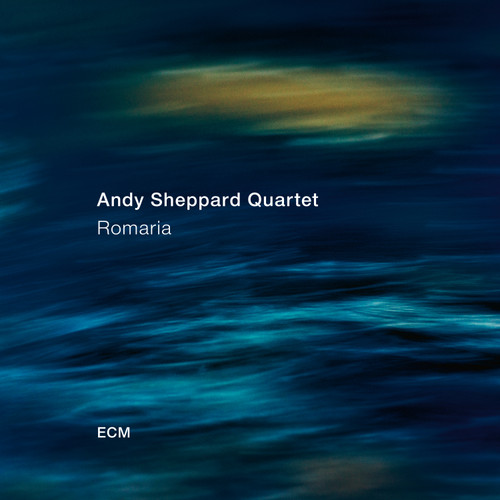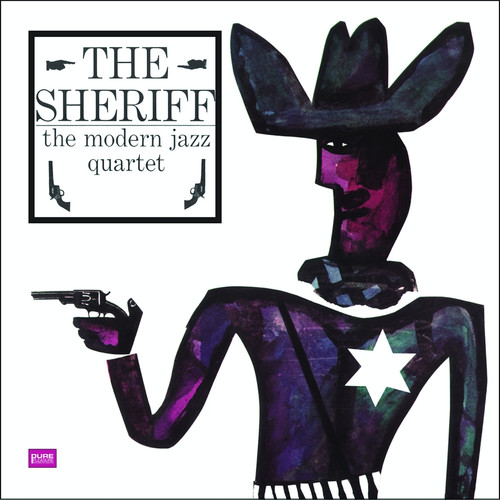They are widely recognised as the most exciting young string quartet of the present moment, bringing new insights to contemporary composition and core classical repertoire. In parallel, they have also made surprising and impressive forays into the world of Nordic folk music. Their 2014 album Wood Works (Dacapo Records) was a left-field hit, and audiences around the world have been delighted by concert performances of the music. Now the Danish String Quartet bring their folk project to ECM with a stirring new recording. Last Leaf took its initial inspiration from an unusual Christmas hymn, “Now found is the fairest of roses”, published in 1732 by Danish theologian and poet H.A. Brorson. The hymn is set to a mysterious, dark melody: Brorson had chosen an old Lutheran funeral choral to accompany his Christmas hymn, elegantly showing how life and death are always connected. “From here we embark on a travel through the rich fauna of Nordic folk melodies until returning to Brorson in the end,” say the DSQ. “It is a journey that could have been made in many different ways, but we believe that we returned with some nice souvenirs. In these old melodies, we find immense beauty and depth, and we can't help but sing them through the medium of our string quartet. Brorson found the fairest of roses, we found a bunch of amazing tunes – and we hope you will enjoy what we did to them.”
FEATURED ARTISTS
TRACKLIST
A1 Despair Not, O Heart, Music By – Traditional 1:21
A2 Shore, Music By – Fredrik Schøyen Sjölin 2:50
A3 Polska From Dorotea, Music By – Swedish Traditional 3:03
A4 Tjønneblomen, Music By – Gjermund Haugen 3:51
A5 Minuet No. 60, Music By – Danish Traditional 2:39
A6 Æ Rømeser, Music By – Danish Traditional 4:02
A7 Intermezzo, Music By – Fredrik Schøyen Sjölin 1:23
A8 Shine You No More, Music By – Rune Tonsgaard Sørensen 3:38
B1 Drømte Mig En Drøm, Music By – Danish Traditional 3:45
B2 Stædelil, Music By – Faroese Traditional 2:44
B3 Naja's Waltz, Music By – Fredrik Schøyen Sjölin3:19
B4 Unst Boat Song, Music By – Traditional From The Shetland Islands 4:46
B5 Fastän, Music By – Eva Sæther 2:43
B6 Hur Var Du I Aftes Så Sildig, Music By – Danish Traditional 2:00
B7 The Dromer, Music By – Danish Traditional 3:01
B8 Now Found Is The Fairest Of Roses, Music By – Traditional 3:01
BACKGROUND
The Danish String Quartet, widely recognized as one of today’s most exciting quartets, not only brings new insights to contemporary composition and core classical repertoire, it has also explored folk music, beguiling listeners with these sounds on record and in concert. For Last Leaf, its second ECM New Series release, the group returns to the texturally rich, emotionally resonant world of Nordic folk, from medieval ballads to funeral hymns, Christmas tunes, boat songs and dances of every sort. The Danish quartet made custom arrangements of this material, playing the music with the lush tone and virtuoso focus that earned the quartet such praise as “spellbinding” from Strings magazine for its ECM debut of 20th-century compositions by Per Nørgård, Hans Abrahamsen and Thomas Adès. That album was also dubbed one of the best of 2016 by The New York Times, while The Guardian declared the recording “terrific” for the quartet’s combination of “grace, grit and clarity.” In the booklet notes to Last Leaf, the group says about its selection of folk tunes: “In these old melodies, we find beauty and depth, and we can't help but sing them through the medium of our string quartet.”
The Danish String Quartet – violinists Rune Tonsgaard Sørensen and Frederik Øland, violist Asbjørn Nørgaard and cellist Fredrik Schøyen Sjölin – convened at the Kirsten Kjær Museum, a favorite recording venue in Frøstrup, Denmark. There, with Sjölin also playing double-bass and Sørensen adding harmonium, piano and glockenspiel for a glistening touch to the arrangements, the quartet captured the 16 pieces of Last Leaf, the album’s title a reference to the oldest known secular song in the Nordic countries, “Drømte mig en drøm” (I Had a Dream). The magical melody was found on the last leaf of a parchment in the Codex Runicus from around 1300, written in runes and containing the so-called Scanian law as well as chronicling the early Danish monarchs. The meaning of “Drømte mig en drøm” has been debated, but most scholars seem to agree that it is a song about justice and fair play.
But it was an unusual Danish Christmas hymn that was “the initial spark of inspiration” for the album: “Now Found Is the Fairest of Roses,” published in 1732 by Danish theologist and poet H. A. Brorson. “It is one of the most beautiful Danish hymns we know,” the group explains. “It is written for Christmas, and it simply describes a fair rose, growing in a world of thorns and thistles. The hymn is set to a mysterious, somewhat dark melody, a tune that most people were familiar with in 1732. To the surprise of many, Brorson had chosen an old Lutheran funeral chorale to accompany his Christmas hymn, showing how life and death are always connected. We believe Brorson touched on something very important: That strong musical material can possess endless possibilities and it is meaningful to explore what happens when the ‘function’ of a melody is tweaked.”
The stories behind this music – told in detail in the booklet notes – are often fascinating. The infectiously upbeat dance “Polska from Dorotea” is attributed to Swedish fiddler, teacher and cantor Johan August Andersson (1866-1902), who lived in the village Dorotea in Lapland. “Andersson had a quite tragic life, losing his wife and daughter during childbirth, which resulted in a local scandal when he entered the church during service to publicly curse God,” the quartet recounts in the notes. “He was subsequently fired from his teaching position, but was allowed to stay as a cantor, because he was such a good fiddler.”
About the piece “Tjønneblomen,” the group says: “Nordic folk music is traditionally music with a defined function: to accompany dancing. In the olden days, you were considered a good fiddler if you knew lots of tunes, you could play loudly for a very long time and, most important, you kept the beat. As time passed, fiddlers began fooling around with concertizing – performing the folk music at concert venues such as churches, with an audience that was just listening, not dancing around. Norwegian fiddler Gjermund Haugen (1914-1976) was one of the most important figures of this tradition, and he wrote this beautiful waltz.”
Another highlight among the ancient folk tunes is “Unst Boat Song.” The group explains: “Unst is the northernmost inhabited island of the Shetland Islands. If you sail out from Norway, it is the first place you will arrive, and there have always been lots of communication and travel across the sea. The ‘Unst Boat Song’ is a very old song, sung in the old Norse language that was spoken by inhabitants of Scandinavia and their overseas settlements during the 9th to 13th centuries. The text is about strong winds and begs the gods to bless the ships that are sailing. It is uncertain if it is a song sung by the men at the oars or by the worried women in home – no one knows if it is a song of struggle or a lament. In our arrangement, we sing it from the perspective of the women, who are praying for the safe return of their men.”
In addition to the old tunes, Last Leaf incorporates three pieces – “Shore,” “Intermezzo” and “Naja’s Waltz” – written in a folk style by DSQ cellist Fredrik Sjölin. The album also includes a reel, “Shine You No More,” written by violinist Rune Sørensen after the harmonic progression of Elizabethan lutenist-composer John Dowland’s iconic “Flow My Tears.” An additional contemporary piece written in a folk style is “Fastän” (Although), a polska by Swedish fiddler Eva Sæther.
The Danish String Quartet is a group with an almost lifelong history of musical collaboration. Its three members born in Denmark – Rune Tonsgaard Sørensen, Frederik Øland and Asbjørn Nørgaard – first played chamber music together in a music summer camp before they were even teenagers, and then continued to do so throughout the school year, driven by their own enthusiasm. In 2001, Tim Frederiksen of the Royal Academy of Music in Copenhagen, who had been the leader of Den Danske Strygekvartet, became the quartet’s mentor and main teacher. In 2006, the group made its first recordings – of Carl Nielsen’s quartets – as the Young Danish String Quartet, immediately attracting the attention of publications from Gramophone to The New York Times. In 2008, Norwegian cellist Fredrik Schøyen Sjölin joined the quartet, and the foursome has since gone from strength to strength, with concert programs embracing core classical repertoire and contemporary music (highlighting Scandinavian composers), as well as folk music – which they play with verve and deep feeling.
Hailed by the Washington Post as “one of the best quartets before the public today,” the Danish String Quartet has won many awards. In 2009, the quartet not only took First Prize in the Eleventh London International String Quartet Competition, but was awarded four additional prizes: the 20th Century Prize, the Beethoven Prize, the Sidney Griller Award and the Menton Festival Prize. The DSQ also received the Carl Nielsen Prize, Denmark’s most important cultural award, in 2011. The New York Times has called the group “an exceptional quartet, whatever repertory they play.”
3 Reviews Hide Reviews Show Reviews
-
It reached my soul through my ears
If you like music for strings (whether classical, folk, or country),you must hear this music!
-
Simply beautiful
I heard an article on NPR about this band they decided to look into it more. I was instantly hooked I usually listen to Folk and more Indie music but I am definitely glad that I branched out the band plays so well off of each other and the traditional folk music from their country is absolutely timeless I am so glad that I came across this band
-
Music from a deep pure spring.
The new album, Last Leaf by the Danish String Quartet (ECM New series,) is the kind of music that beckons one to listen in wonder, like a child. At its heart, it’s an album of deeply felt folk music, albeit dressed in superb, sophisticated arrangements and executed with consummate classical precision. Put it on and at once, you’re in familiar territory. Yet, what was that strange chord there, and why did that song start out one way and take me here…? Besides the odd moment of untraditional dissonance, there are times when the album invokes classical minimalism, inviting one to think of Terry Riley’s string quartets – in more reflective moments I hear snippets of Arvo Part at his most spare. I even hear moments that remind me of Lou Harrison. But then, suddenly the group is off at a bright pace on what almost sounds like a traditional jig from the British isles. I have found Scandinavian folk music to be like that sometimes, not so very far from the British Isles after all, and I like it. This is a gorgeous album that is almost impossible not to like. It is by turns, dramatic, mournful, playful and ecstatic. But it is always beautiful, sounding like it rose from a natural spring perfectly in tune, so light and dynamic it feels as if it is being played by angels.











